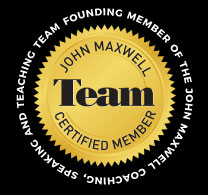Why so Much Pain?
“I am crushed by the criticism. I get so tired of all the hats I wear, jobs I do, and time I spend. I’m exhausted by the weight of responsibility I have!” Does this sound like you?
Leadership can be a burden. It will be painful — physically, emotionally, and spiritually.
It is inevitable, inescapable. By its very nature leadership produces change, and change – even wonderful growth and progress- always involves at least a measure of confusion, loss and resistance. To put it another way, leadership that does not produce pain is either in a short season of unusual blessing or it is really not making a difference. Leadership is a magnet for pain which comes in many forms. You catch flak for bad decisions and people blame you. You get criticism even for good decisions because you have changed the beloved status quo. When people suffer a crisis, you care deeply for them and instead of giving simplistic advice (or blowing them off) you carry their burden which means that some of the weight of their loss falls on you. Along the way, you are not immune to the ravages of betrayal by those you trusted, the envy of your friends and the list goes on.
Many at times a leader feel shackled by past failures or past pains. Others look into an uncertain future and feel paralyzed. Even for a leader who was not idealistic about the cost of leadership, certainly didn’t expect the level of conflict, discouragement and struggle they endured as they were doing “a noble thing”. They were blindsided by the pain. Many assume that something is terribly wrong with them or God because the pain is not quickly going away. The solution – do anything and everything to ensure the pain goes away. As such you find a lot of leaders suffer from addiction to various substances and behaviors. What many don’t realise is that this is exactly the wrong response! Numbness is not a viable answer. In fact, it always compounds the problem!
My friends, pain is not the enemy. The inability and unwillingness to face the pain is a far greater danger. You do not want to pay the price. You have been conditioned to believe that you have to put on a happy face (or at least a stoic face) for the people in you organisation, so you refuse to admit your discouragement, disappointment and disillusionment – even to yourself. You tell their worried (and maybe angry) spouse “as soon as this project is over, the kids go off to high school or some other benchmark is achieved, I will slow down and the stress with subside”.
Jim Morrison put it well when he stated that “Pain is meant to wake us up. People try to hide their pain. But they are wrong. Pain is something to carry, like a radio. You feel the strength in the experience of pain. It is all in how you carry it. That’s what matters. Pain is a feeling. Your feelings are a part of you. Your own reality. If you feel ashamed of them and hide them, you are letting society destroy your reality. You should stand up for your right to feel your pain”.
Paradoxically, Christians have more difficulty handling pain than unbelievers. They look at the promises of God and conclude that God should fill them with joy, love, support and success. That’s not the case – it is reading the bible selectively. The scriptures state clearly and often – that enduring pain is one of the ways, perhaps the main way, God works His Grace deeply into our lives.
So you may be asking, I don’t know what to do with this pain. How do I carry it? At Njeri Muchunu Global our leadership programs are designed for the heart, not the head. It is about feeling deeply the emotions we spend our lives avoiding, like the pain of failure and loss. I am fully convinced that the act of diving deeply into the feelings we avoid, the feelings we don’t necessarily even know we have is our only hope of breaking our link in the chain of hurt, suffering and pain.
We cannot lead without feeling the pain because the things we do to avoid feeling pain result in poor leadership. That pain is part of the leadership journey and is sometimes forgotten or considered failure. Because of this pain we don’t acknowledge others. We try to control everything. We lose our temper and criticize others disproportionately.
Join us again next week as we speak about how to make friends with pain. If you would like us to hold your hand and walk with you on this noble path of leadership reach out to us.
Recent Posts
-
IT’S NOT MY FAULT!
-
SQUEEZED IN THE MOLD
-
Growth Pains
-
Transformation
-
End of Myself!
-
At my “Wits’ End”!
-
I LOVE YOU – FROM DADDY
-
BUSY? MAKE TIME FOR WHAT MATTERS!
-
BAD-MOUTHING!
-
Leadership 101: Demands of Leadership
-
LET’S TALK ABOUT SEX!
-
I AM BROKEN!
-
Friends Forever
-
START WITH GRATITUDE
-
Life’s Secret Weapon
-
Excuses, Excuses, Excuses = Mediocrity!
-
What Choices Have You Made?
-
Wait on God
-
Find Yourself!
-
What’s in It For Me?


